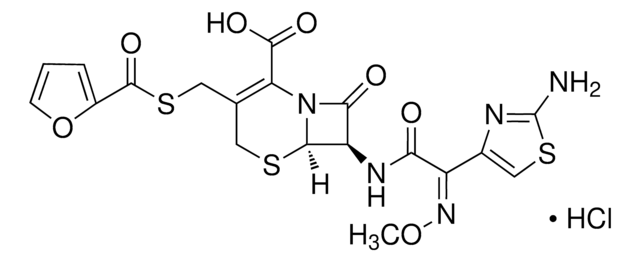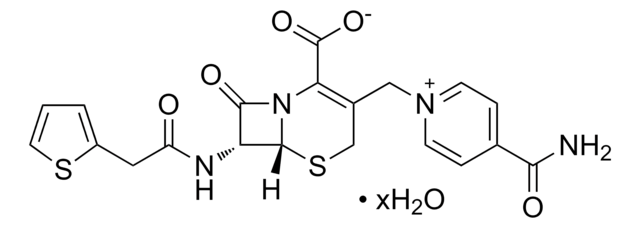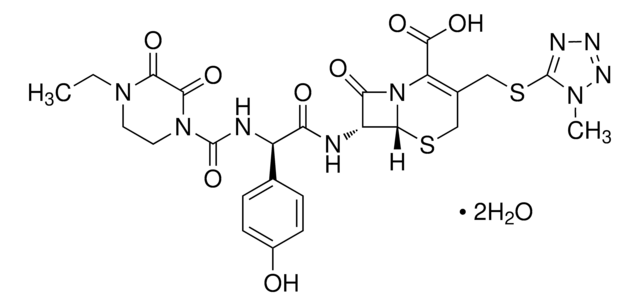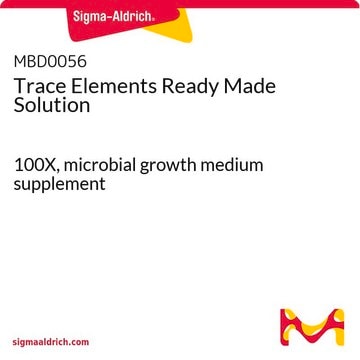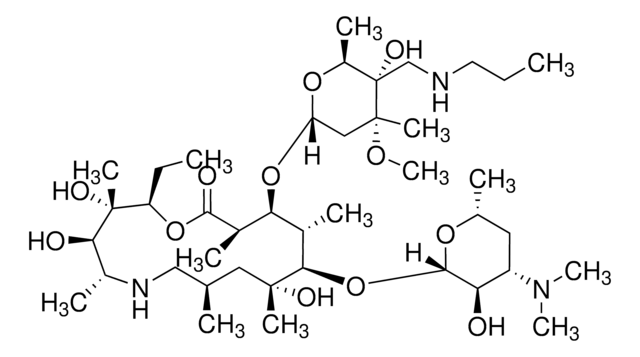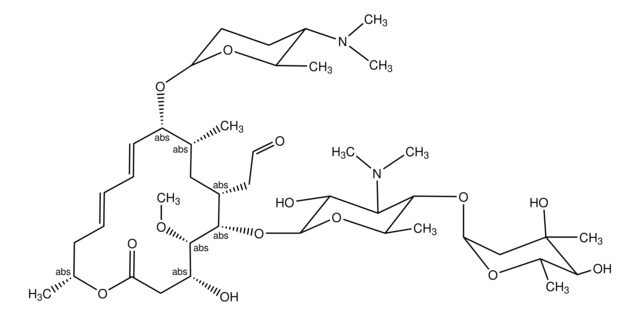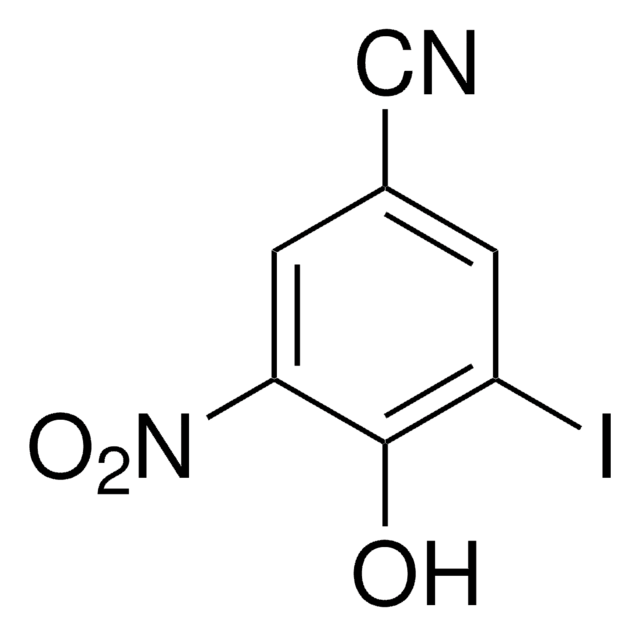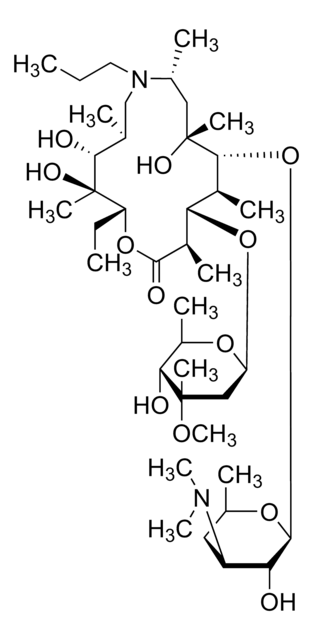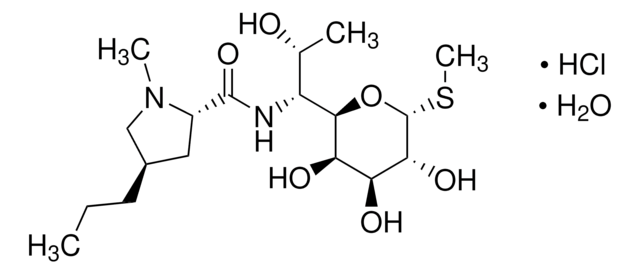32472
Cefquinome sulfate
VETRANAL®, analytical standard
Synonym(s):
(6R,7R)-7-[[(2Z)-2-(2-Amino-1,3-thiazol-4-yl)-2-methoxyiminoacetyl]amino]-8-oxo-3-(5,6,7,8-tetrahydroquinolin-1-ium-1-ylmethyl)-5-thia-1-azabicyclo[4.2.0]oct-2-ene-2-carboxylate sulfate, Cefquinome sulphate
About This Item
Recommended Products
grade
analytical standard
Quality Level
product line
VETRANAL®
shelf life
limited shelf life, expiry date on the label
technique(s)
HPLC: suitable
gas chromatography (GC): suitable
application(s)
forensics and toxicology
pharmaceutical (small molecule)
format
neat
storage temp.
2-8°C
SMILES string
OS([O-])(=O)=O.CO\N=C(/C(=O)N[C@H]1[C@H]2SCC(C[n+]3cccc4CCCCc34)=C(N2C1=O)C(O)=O)c5csc(N)n5
InChI
1S/C23H24N6O5S2.H2O4S/c1-34-27-16(14-11-36-23(24)25-14)19(30)26-17-20(31)29-18(22(32)33)13(10-35-21(17)29)9-28-8-4-6-12-5-2-3-7-15(12)28;1-5(2,3)4/h4,6,8,11,17,21H,2-3,5,7,9-10H2,1H3,(H3-,24,25,26,30,32,33);(H2,1,2,3,4)/b27-16-;/t17-,21-;/m1./s1
InChI key
KYOHRXSGUROPGY-OFNLCGNNSA-N
Looking for similar products? Visit Product Comparison Guide
General description
Application
- Pharmaceutical dosage form by reversed phase high performance liquid chromatography (RP-HPLC).
It may be used as a precursor for the preparation of cefquinome that can be employed as an analytical reference standard for the analysis of the analyte in:
- Bovine milk as well as muscle and kidney samples by HPLC and LC coupled to tandem mass spectrometry (MS/MS), respectively.
Legal Information
Signal Word
Danger
Hazard Statements
Precautionary Statements
Hazard Classifications
Aquatic Acute 1 - Aquatic Chronic 1 - Eye Irrit. 2 - Resp. Sens. 1 - Skin Irrit. 2 - STOT SE 3
Target Organs
Respiratory system
Storage Class Code
11 - Combustible Solids
WGK
WGK 3
Choose from one of the most recent versions:
Already Own This Product?
Find documentation for the products that you have recently purchased in the Document Library.
Customers Also Viewed
Our team of scientists has experience in all areas of research including Life Science, Material Science, Chemical Synthesis, Chromatography, Analytical and many others.
Contact Technical Service



